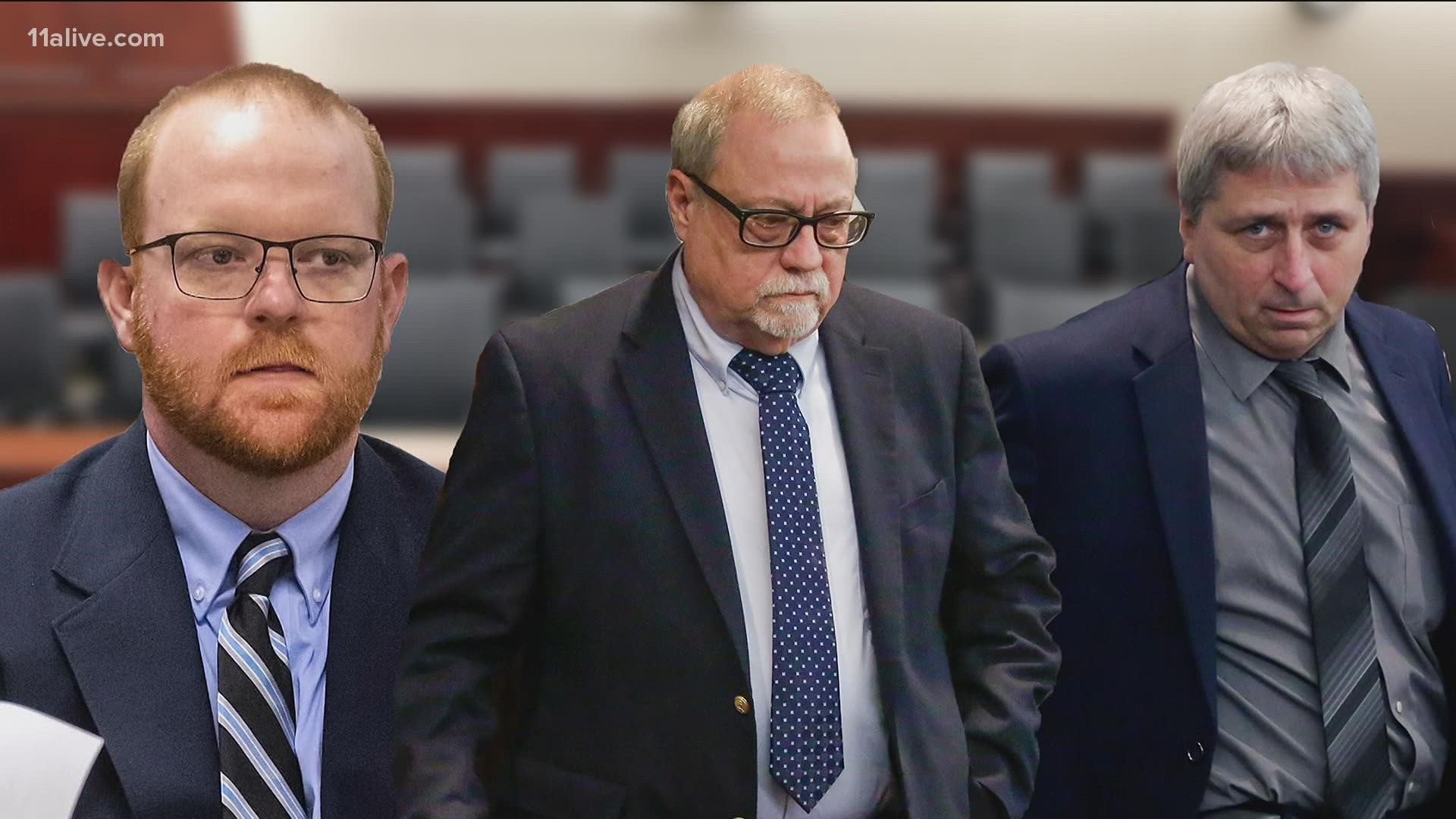ATLANTA — It was a Glynn County jury that listened to eight days of testimony before convicting three men of murdering Ahmaud Arbery, but a judge alone will be the one to sentence the them.
The jury of nine women and three men deliberated 11 hours before rendering their guilty verdicts in November. Travis McMichael, Greg McMichael, and William Bryan all face life sentences. Now, a judge will decide if that sentence will be with or without the possibility of parole.
The jury will have no say in the sentencing.
“They may have thought they had some say in it, so they’re probably shocked as well that they have no say,” explained Criminal Defense Attorney Alicia Luncheon.
Only a handful of states allow juries to sentence someone convicted of a crime. The exception is if the defendant is facing the death penalty, which is not the case for the men convicted of murdering Arbery.
In any case, Luncheon said lawyers can’t discuss possible sentences in front of the jury.
“In a trial, if you mention anything about sentencing or prison or jail, that’s grounds for a mistrial and you’ll have to start over,” she added.
The purpose, according to Luncheon, is to separate the verdict from sentencing.
“You don’t want the jurors distracted by what the sentence might be,” she said. “Let’s say they do think this person did commit an armed robbery but they don’t want them to go to prison for 20 years. They might say “not guilty” to avoid that result.”
Luncheon explained that the judge will have information about a case that the jury doesn’t know.
“There are so many conversations that take place outside the presence of the jury, evidence that was kept away from the jury,” Luncheon said. “That’s a huge factor in a sentence.”
Some defense attorneys have argued that juries should at least know the possible sentences when debating guilt or innocence.
This year, Virginia passed a law allowing defendants to choose if a judge or jury decides their sentence.

